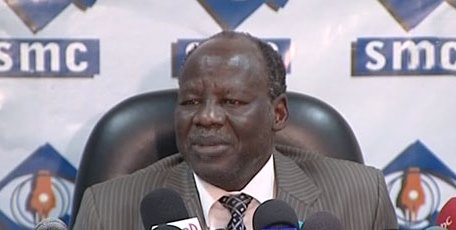A South Sudanese opposition leader insisted that “nothing was agreed upon” between the government and the rebels during the recent peace talks in Addis Ababa, contradicting statements made in Juba that there were few signs of progress.
The East African regional bloc IGAD, which has been mediating the peace process, suspended already faltering peace negotiations after the expiry of a deadline for the second round of the talks on 16 February.
Lam Akol Ajawin, leader of the opposition National Democratic Movement (NDM), said in an interview with Radio Tamazuj today that the two sides ended the recent peace talks without any progress.
“Nothing was agreed upon during the talks. We have agreed only to return to Addis and resume the next round of talks,” Akol said.
The rebel leader claimed there was no any positive outcome or consensus on security arrangements and governance. “Sincerely, no agreement was reached on anything. We have not reached any agreement on some issues,” he said.
Akol emphasized the need for some “serious discussions” during the next round of talks, but he noted that “more work required.”
He has blamed the Kiir administration for narrowing and confining the key issues to government positions.” The government came to the peace talks to offer positions to the opposition. We said the revitalization process should address the root causes of the conflict,” he said.
He explained that the latest round of talks hit a deadlock over divergent views between the government and the opposition coalition on the key issues.
“The opposition has not yet made any proposal on how the government will look like. We are still talking on the principles that will form the basis of the transitional government,” he explained.
Akol, who has been a leading critic of the government in Juba, said they demanded that President Kiir should be excluded from the transitional government because he has continuously abrogated the 2015 peace agreement.
“Who killed the agreement? We are saying the 2015 peace agreement was abrogated by Salva Kiir, so he has to be held accountable. You cannot reward someone who has plunged the country into conflict again,” he said.
Akol formed his rebel movement in September 2016 after resigning from the unity government in Juba.




